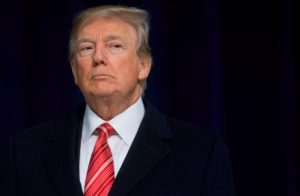Constitutional language and behavior reveal much about leaders. Presidents Abraham Lincoln and Franklin D. Roosevelt excelled in fashioning persuasive images of the Constitution and constitutional aspirations.
Lincoln advised Americans to follow “the better angels of our nature” rather than permanently divide the nation, while Roosevelt said “the only thing to fear is fear itself” and promised a “New Deal” to restore the American dream.
President Theodore Roosevelt informed Congress in 1903: “No man is above the law and no man is below, nor do we ask for permission when we require him to obey it. Lawful obedience is a right, not a favor.”
- California RESIDENTS To RECEIVE $500 MONTHLY PAYMENTS In New Guaranteed Income Program: Here Is Who Is Eligible
- Us Job Market Booms With 272,000 New Jobs, But Unemployment Rises Slightly To 4.0%
- Credit Scores Of 720+ See Improved Loan Rates This Week
- Examining The Facts: Fact Check On IRS $8700 Stimulus Check Eligibility & Payment Dates
- Gas Prices On Downward Trend As Fourth Of July Road Trips Approach: AAA
Former President Donald Trump is intensifying his trademark tactics of bullying, boasting, and making controversial promises.
Trump’s campaign promises include rooting out what he labels “radical left thugs,” prosecuting President Joe Biden, and seeking retribution against his political foes.
Trump contends that, as a former president, he is entitled to unprecedented immunity, shielding him from criminal prosecution for actions during his term.
Despite his fervent arguments, this claim has faced consistent rejection in various courts, culminating in a recent rebuff from the US Court of Appeals for the District of Columbia.
The legal clash extends beyond Trump’s personal ambitions. His influence resonates within the House, where Republicans, under leaders like Kevin McCarthy and Mike Johnson, are pursuing impeachment proceedings against President Biden.
Notably, these efforts include attempts to impeach Secretary of Homeland Security Alejandro Mayorkas, showcasing policy disagreements as grounds for impeachment, a departure from the framers’ intent.
Trump’s Post-Presidential Challenges

Simultaneously, investigations into President Biden’s son, Hunter, echo discredited defenses from Trump’s previous impeachment.
The Supreme Court’s directives on congressional subpoenas, established in Trump v. Mazars are being challenged as Republican House members engage in speculative rhetoric, accusing the Biden family of corruption.
Trump’s 14th Amendment section 3 answer is the most serious part of his post-presidential life, regardless of the legal issues.
This section, barring individuals engaged in insurrection from federal office, raises questions about Trump’s eligibility. His ominous predictions of “bedlam” and “big trouble” indicate a willingness to challenge democratic norms.
The specter of violence looms large in Trump’s rhetoric, notably showcased during the events of January 6.
Urging supporters to “fight back” and witnessing the storming of the Capitol, Trump’s approach raises concerns about prioritizing fear over the rule of law.
As Trump’s legal challenges continue, the Supreme Court appears poised to rule in his favor on issues such as ballot removal in Republican primaries.
Despite this, prominent figures like Mitch McConnell have condemned Trump’s actions, labeling the events of January 6 as a “shameful, violent riot.”
In spite of the current constitutional instability the upcoming fall election will be an important challenge for democratic protections.
The urgent need for maintaining the Constitution’s principle that “the law is king” and that no one is above it is highlighted by Trump’s pledges of retribution against opponents and his use of violent rhetoric.
